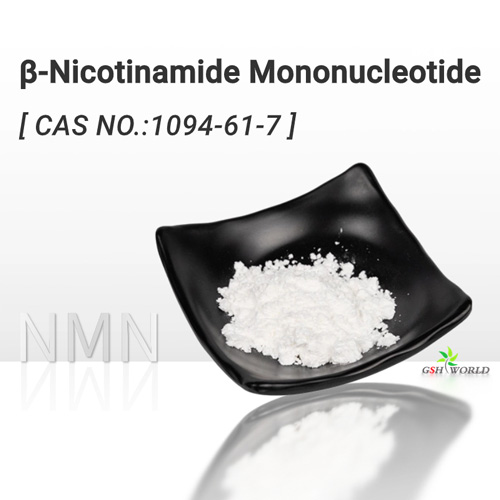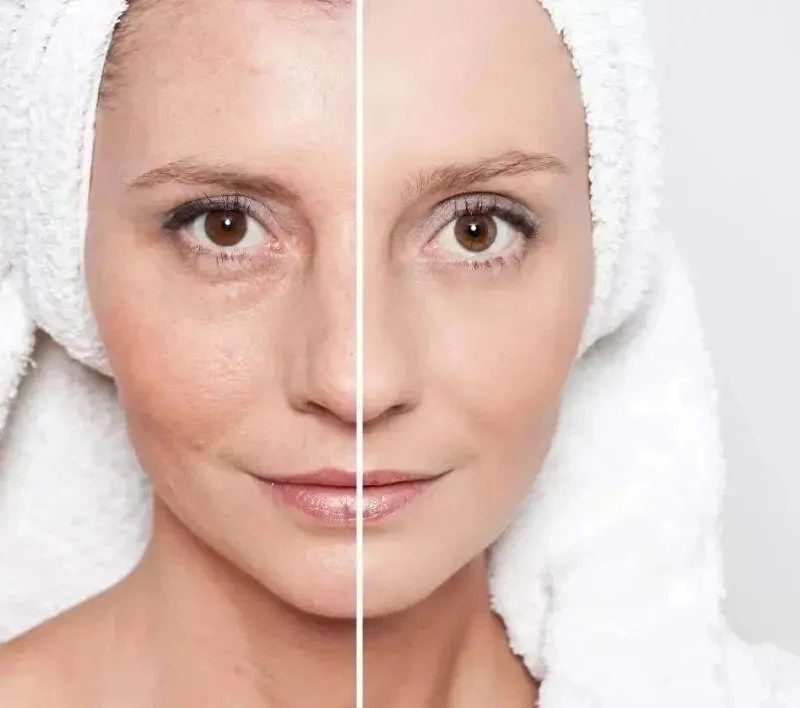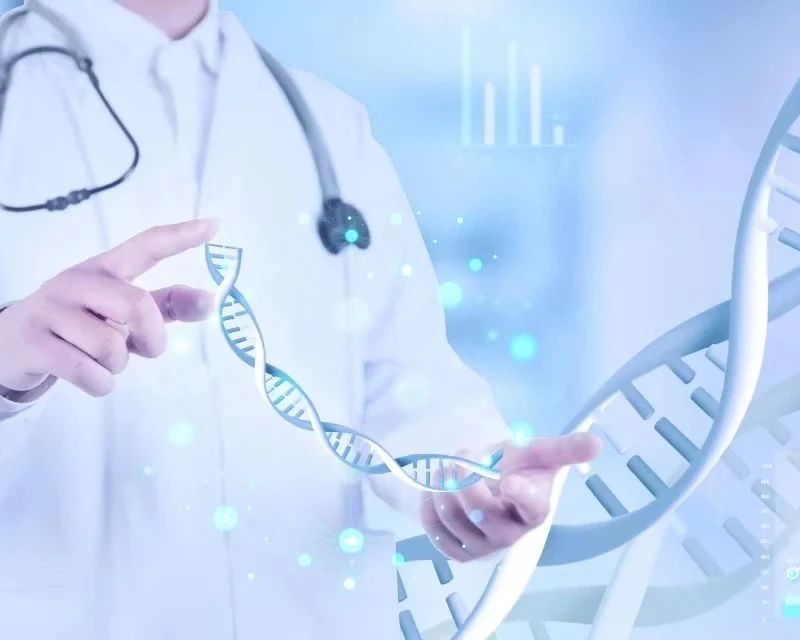Anti-aging products spring up like bamboo shoots, among which nicotinamide mononucleotide (NMN) products can be said to be the hot darling of the anti-aging industry.
What do humans fear most? According to the survey, aging is the inevitable existence of human beings, and it is also the most feared thing.
With the increase of global aging, people pay more and more attention to their own aging problems, and begin to try a variety of anti-aging methods.
Behind the influx of a large number of NMN products into the market is consumer concern about the efficacy and safety of NMN products.

In September 2021, foreign scholars and domestic scholars from Fudan University and Jiaotong University jointly released “Niacinamide mononucleotide (NMN) as an anti-aging health product – Promise and Safety Issues”.
Based on the research and efficacy of NMN, the prospect and safety of NMN as an anti-aging product are discussed in this paper.
NMN and anti-aging mechanism
Why do our bodies age? One of the main reasons for this is the decline in human NAD+ levels.
NAD+, also known as Coenzyme I, is involved in thousands of biocatalytic reactions. All kinds of substances needed by the human body need coenzymes to synthesize, but with the increase of age, the content of NAD+ contained in the human body will gradually decrease.
Data show that the content of NAD+ in the human body will decline rapidly after the age of 30, if the NAD+ content is not supplemented, the aging performance of the human body after the age of 30 will become more obvious.
However, studies have shown that NAD+ molecules are too large to be directly supplemented by external conditions, and NAD+ supplementation can only be achieved by ingesting NAD+ precursor substances with smaller molecular weights.
Among several precursor substances, NMN is the most efficient and direct synthesis pathway of NAD+.

The full name of NMN is niacinamide mononucleotide, which belongs to the category of vitamin B derivatives, mainly located in the nucleus, mitochondria and cytoplasm, placenta and blood, urine.
It has two main irregular forms of existence, α and β, of which the β form is a naturally occurring bioactive nucleotide that can absorbed by the body through external supplementation.
NMN is catalyzed by the transferase NMNAT to produce NAD+, which is involved in biochemical reactions such as cell energy generation and regulation of long-lived Sirtuins activity, and is closely related to immunity and metabolism.
Its anti-aging, anti-aging drug effect is based on the auxiliary function of NAD+ synthesis.
Animal studies have shown that oral NMN can increase the level of NAD+, which can extend the life span of biological models close to humans by more than 30%.
NMN has great potential for anti-aging
With the increase in the global elderly population, the incidence of age-related diseases such as atherosclerosis, high blood pressure, osteoarthritis, neurodegenerative diseases, including Alzheimer’s and Parkinson’s diseases, diabetes and cancer is also on the rise.
More people are beginning to realize that it is urgent to delay aging and cure age-related diseases.
Research And Markets report shows that in 2020, the global anti-slump market size about 163.795 billion yuan, ranking second in China, the anti-slump market size expected to reach 49.794 billion yuan in 2027.
According to the calculation of CITIC Securities, the current NMN market space corresponding to each 1% of the domestic health care product population is 30.4 billion yuan, and the future NMN anti-aging industry space is huge.
For the efficacy of NMN in delaying aging, domestic and foreign research teams have conducted many studies and experiments, and published corresponding research results in authoritative journals.

In April 2021, the team of Dr. Liu Qiming, Director of the Department of Cardiovascular Medicine at the Second Xiangya Hospital of Central South University, published a review article on Clinica Chimica Acta.
He said that supplementing and stabilizing NAD+ levels in the body is currently one of the best ways to treat and even prevent cardiovascular disease.
Research experiment
In January 2021, Italian medical experts published a review in Antioxidants & Redox Signaling that NAD+ supplements have excellent repair benefits for kidney injury.
In February 2021, the research team of Professor Xiong Bo of Nanjing Agricultural University published a document in the sub-journal “Cell” proving that:
NMN’s replenishment of NAD+ and the repair ability of mitochondria can protect oocyte quality from degradation caused by environmental pollutants, helping to improve the fertility of animals and humans.
In May 2020, Krish’s research team at the Department of Neurology at the University of Maryland experimentally proved that NMN can prevent hippocampal neurodegeneration caused by memory impairment caused by diabetes.
By activating SIRT1, promoting DNA repair, regulating REDOX reaction, reducing inflammation and other ways, NMN can improve and prevent related diseases caused by aging, so as to delay aging. This also confirms the great potential of NMN as an anti-aging product.
Security issues of NMN
The rise of NMN research boom and the participation of capital, pharmaceutical companies, health care companies, biotechnology companies to compete together, a variety of NMN products into the market, mixed, there is a greater need for formal qualifications and guaranteed safety products.
At present, in the existing clinical studies, NMN seems to have considerable beneficial pharmacological effects, but no toxic effects on human beings have found.
Yoshino et al. conducted a clinical trial in which 25 overweight or obese prediabetic women supplemented with 250 mg/day of NMN for 10 weeks to determine the effects on body composition, gene expression profile, insulin signaling, and insulin sensitivity, and potential metabolic benefits observed without any adverse effects.
The Faculty of Medicine, Keio University School of Medicine, Japan conducted an unblinded clinical trial using 10 healthy men to investigate the safety of oral NMN administration and the pharmacokinetics of niacinamide metabolites.
They found that NMN administration did not increase niacinamide in the blood to levels that led to adverse reactions associated with high doses of niacinamide.

Conclusion
NMN is a precursor of NAD+ and affects human aging.
At present, many studies have explored the anti-aging effect of NMN in various cells and tissues, and clinical studies on the safety of long-term administration of NMN have demonstrated the anti-aging effect of NMN, which is a great boost to the current anti-aging research.
References:
- [1]United Nations (UN), Department of Economic and Social Affairs, Population Division. World population ageing 2019:highlights(ST/ESA/SER.A/430). New York, USA: United Nations; 2019.
- [2]M.J. Yoshino, B.D. Yoshino, G. Kayser, M.P. Patti, K.F. Franczyk, M. Mills, T. Sindelar, B.W. Pietka, S.I. Patterson, S Klein Imai Nicotinamide mononucleotide increases muscle insulin sensitivity in prediabetic women Science (2021), p. eabe9985
- [3]J. Irie, E. Inagaki, M. Fujita, H. Nakaya, M. Mitsuishi, S. Yamaguchi, et al. Effect of oral administration of nicotinamide mononucleotide on clinical parameters and nicotinamide metabolite levels in healthy Japanese men Endocr J, 67 (2) (2020), pp. 153-160




